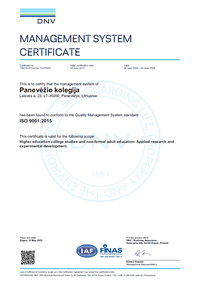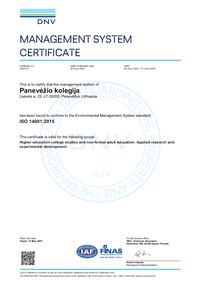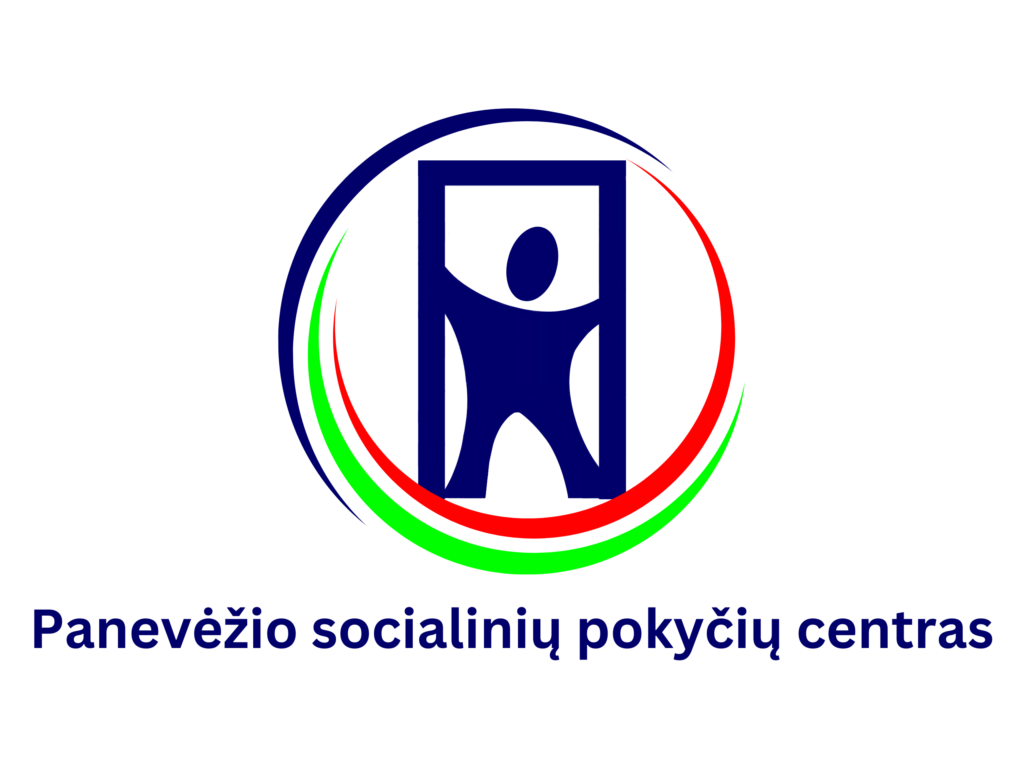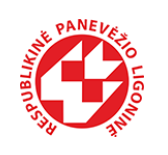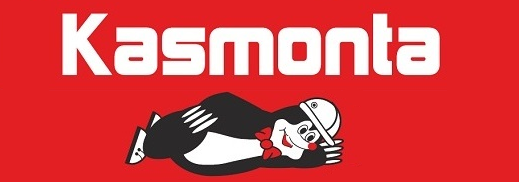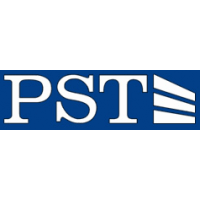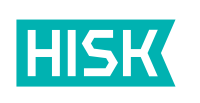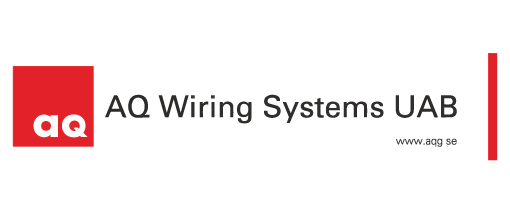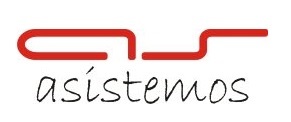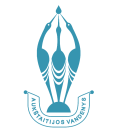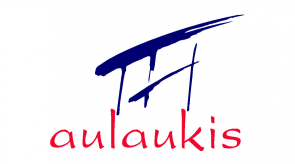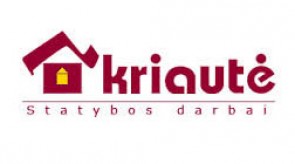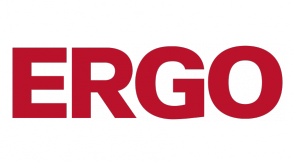Quality
We understand quality as a commitment to ensure and continuously improve quality in all areas of activity, including teaching and learning processes, study programs, research and services provided.
Quality Policy 2025 of Panevėžys College
INTERNAL QUALITY ASSURANCE
The College’s internal quality assurance is key to the efficiency and success of the institution. It includes a variety of processes and actions designed to ensure high academic quality, institutional performance and student welfare. The focus on internal quality assurance has a significant impact not only on the quality of teaching, but also on the overall reputation of the College and its ability to retain and attract talented students and quality teaching staff.
Quality assurance is pursued at every level: teacher, study field program committee, faculty, administration, College.
Panevėžys College, strengthening its competences in the field of quality assurance, participates in the activities of national and international associations. This is an opportunity to receive up-to-date information on quality management and innovation development issues, to share good practices and at the same time to increase the trust of our stakeholders. The Associations bring together representatives of science, business and the public sector.
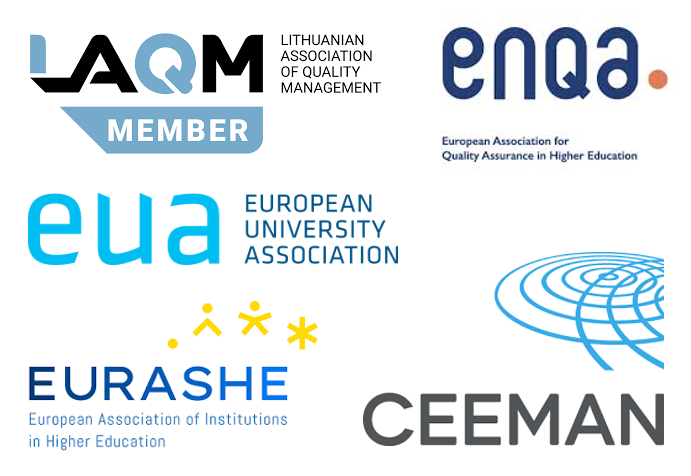
Quality assurance of the Institution’s performance
An important area of internal quality assurance is the efficiency of the management and administration of the institution. A good structure, efficient decision-making, allocation of responsibilities and communication between managers and staff enable the College to operate smoothly and efficiently. It is also important to ensure that the College complies with relevant legislation and quality standards (see section Quality Assurance Documents) to ensure a high ethical and professional standard of performance.
The College has a Quality Management System (QMS), which covers the entire activities of the organisation and is aimed at monitoring and evaluating (Panevėžys College’s Operational Strategy and Strategic Operational Plan 2021-2026) the College’s key areas of activity (studies, applied scientific and artistic activities, community, infrastructure, management) in order to achieve the set quality objectives and to continuously improve these activities.
The QMS consists of an Internal Quality Assurance System for Studies (IQASS), descriptions of procedures, which define requirements for processes, responsibilities for actions performed, and interfaces with other internal and external documents.
The QMS is coordinated and its performance is continuously improved by the Management Representative for Quality.
Internal Quality Assurance System for Studies (IQASS)
Processes at Panevėžys College
List of procedures
2021-2026 Strategic plan of Panevėžys College
Quality assurance of studies
The quality of studies is a key priority at the College. Continuous updating of programs, striving to meet the modern needs of the educational and business world, helps to ensure that students receive the necessary and relevant knowledge and skills for their careers.
The College has an Internal Quality Assurance System for Studies (IQASS), which aims to ensure the quality of studies and the achievement of the strategic objectives of studies, and to foster a quality culture. It provides the model of the Internal Quality Assurance System for Studies and the quality policy, regulates the development, implementation, monitoring, updating and evaluation of study programmes, the organisation of student-centred teaching and learning, the course of studies, study resources, requirements for the development of the qualification of lecturers, the processes of information management, and public information, and establishes evaluation criteria.
The IQAS model is based on the Standards and Guidelines for Quality Assurance in the European Higher Education Area (ESG) 2015.
The study quality assurance system is coordinated and its effectiveness is continuously improved by the Deputy Director for Studies and the Management Representative for Quality.
Continuous improvement
The continuous improvement process is pursued through the Deming Cycle (P-D-C-A)
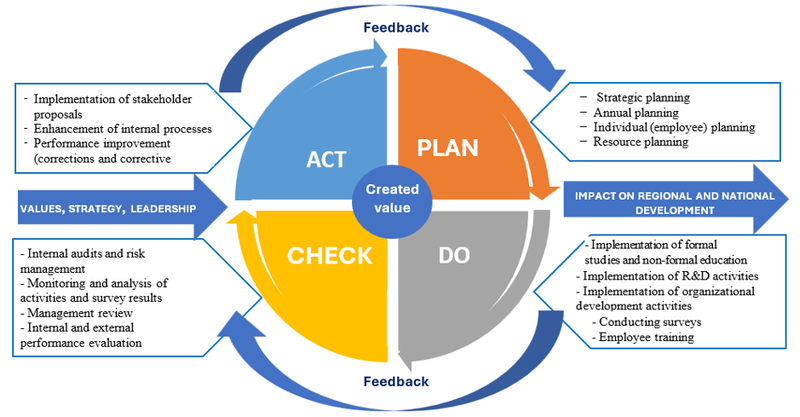
Quality assurance is based on continuous improvement and the involvement of all stakeholders:
- The College’s Strategic Plan 2021-2026 explicitly foresees the implementation of quality assurance and improvement actions, especially in the areas of teaching, learning, study programmes and research.
- The culture of quality is increased by activating the commitment of the College’s teachers, researchers and administration to improve the quality of studies and research, and students become responsible for learning outcomes and provide constructive feedback.
- Internal and external quality assurance processes involve external social stakeholders, such as representatives of business and other organizations, academic partners and quality agencies.
Engagement in quality assurance
Panevėžys College social stakeholders (administrative and academic staff, students, employers) participate in the following governing bodies and committees of the College:
- the College Council
- the Academic Council
- College committees, commissions and various working groups
- Undergraduate thesis/project defence committees
- New Programme Development Groups
- Self-assessment groups for study fields and institutional evaluation
EXTERNAL QUALITY ASSURANCE
External quality evaluation is a key process for assessing the effectiveness of a college’s performance and its compliance with external quality standards or criteria. It is an important step in ensuring a high level of reputation, transparency and trust among the public, students and employers. External evaluation helps a college to analyse its performance, identify strengths and weaknesses, and make improvement decisions to achieve the best results.
Institutional review
In accordance with the Order of the Minister of Education, Science and Sports of the Republic of Lithuania on the Approval of the Procedure for the External Review and Accreditation of Higher Educational Institutions and Branches of Foreign Higher Educational Institutions, Evaluation Areas and Indicators, as well as in accordance with the Methodology for Conducting an Institutional Review in Higher Education, as adopted by the Centre for Quality Assessment in Higher Education, the College shall participate in the periodical external assessment of the institution.
The quality of the HEI’s performance is assessed in the following areas:
- Management
- Quality assurance
- Study and research
- Impact on regional and national development
Preparation for accreditation at the College is carried out in accordance with the description of the Procedure for Conducting an Institutional Self-Assessment PA 08 of the QEMS.
Panevėžys College was accredited for seven-year period in 2022.
Evaluation of study fields
The external evaluation and accreditation of fields of study is carried out in accordance with the following legal acts: Procedure for External Evaluation and Accreditation of Studies, the evaluation areas and indicators (approved by the Minister of Education, Science and Sport of the Republic of Lithuania); Methodology of External Evaluation of Study Fields (approved by the Director of Centre for Quality Assessment in Higher Education).
The quality of study fields is assessed according to the following areas.
- Study objectives, outcome, content;
- Links between science (art) and study activities;
- Student admission and support;
- Studying, academic achievement and graduate employment;
- Teaching staff;
- Study facilities and learning resources (material resources);
- Study quality management and publicity.
QUALITY SURVEYS AND FEEDBACK ON ENHANCEMENT
Quality surveys and feedback are very important tools for the College to improve its performance and service delivery, to ensure continuous improvement, and to ensure the satisfaction of students, staff and social partners.
Surveys
For quality improvement purposes, the aim is to ensure continuous feedback from internal and external social stakeholders. Each year, surveys are carried out in accordance with the approved Quality research/survey plan (active link – https://intranetas.panko.lt/kvs-dokumentai/). The following study-related surveys are carried out at the intervals set out in the PA 10 survey procedure: relevance of the study programme (demand for study programmes and relevance to labour market requirements, graduate employability and career monitoring); quality of the study programme and its organisation (adaptation of students; quality of the course and its teaching; quality of the study programme and its organisation); organisation of the final assessment; quality of the professional internship.
In AKADIS (Academic Information) system and MOODLE, the entire academic community (students, lecturers) can express their thoughts, preferences and observations in a continuously active window that is analysed and acted upon.
All other surveys carried out by the individual units of the College are carried out on a demand-driven basis.
Feedback on enhancement
Feedback is provided by publishing the implementation of received comments and requests on the College’s website and discussing them at meetings.
QUALITY ASSURANCE DOCUMENTS
Quality assurance and continuous improvement of the College’s activities are based on the provisions of quality assurance of higher education, which are regulated by national legislation, The Law on Higher Education and Research of the Republic of Lithuania, by-laws and international requirements of the Ministry of Education, Science and Sports, Centre for Quality Assessment in Higher Education (SKVC), essential provisions of the European Higher Education Area (EHEA) and the European Research Area (ERA), the Bologna process and other relevant documents.
Main documents regulating higher education
Main documents regulating external evaluation (Evaluation of studies)
Main documents regulating external evaluation (Institutional Review)
Main documents regulating external evaluation (External QA Framework)
Other legal acts regulating studies in Lithuania
Standards and Guidelines for Quality Assurance in the European Higher Education Area (ESG)
Main EHEA and ERA documents:
The Bologna Process and the European Higher Education Area
Higher education initiatives
European research area (ERA)
Other legal acts:
Main internal studies regulating documents
Kokybės vadybos sistemą reglamentuojantys tarptautiniai dokumentai:
International documents regulating Quality management system:
MANAGEMENT SYSTEM CERTIFICATION
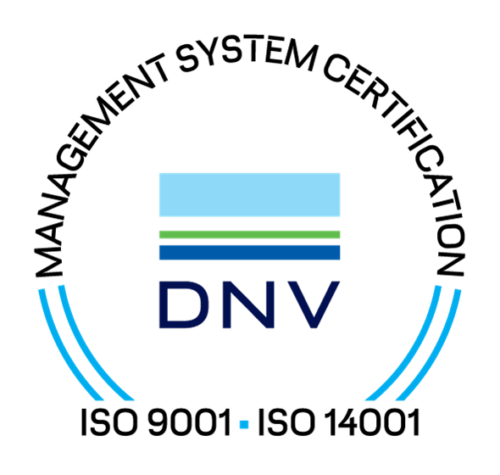
The College’s Quality Management System is certified in accordance with the requirements of international standards LST EN ISO 9001:2015 and LST EN ISO 14001:2015:
LST EN ISO 9001:2015 – Quality management systems. Requirements;
LST EN ISO 14001:2015 – Environmental management systems. Requirements with guidance for use.
The system is also aligned and compliant with EN ISO 21001:2018. Educational organizations – Management systems for educational organizations – Requirements with guidance for use.
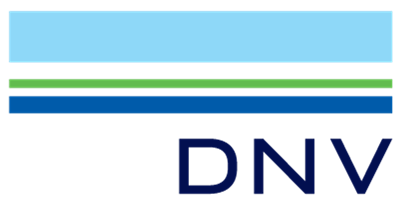
The College’s quality management system is accredited and maintained by DNV which is the world’s leading international certification body providing management system certification, risk management and other services.

